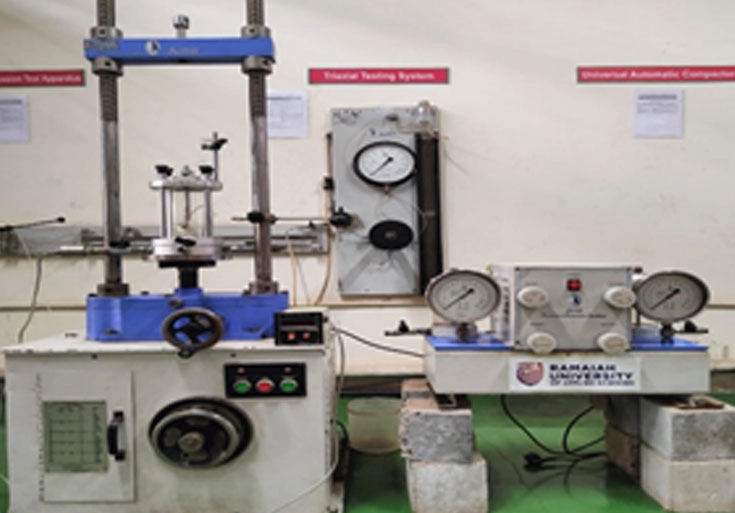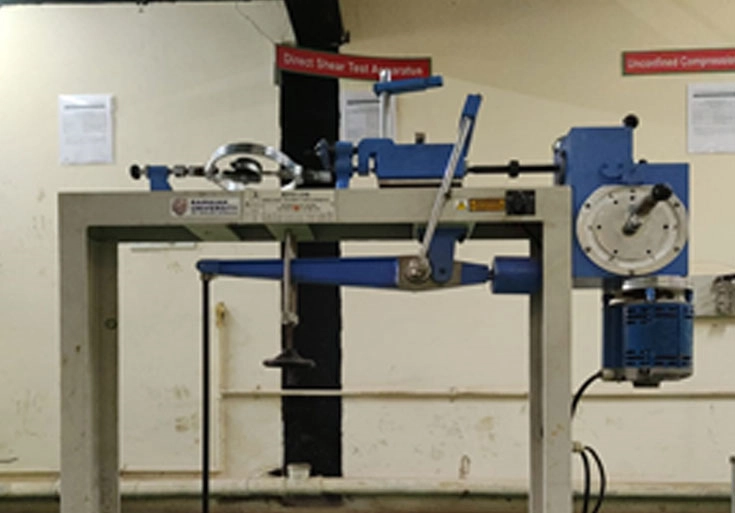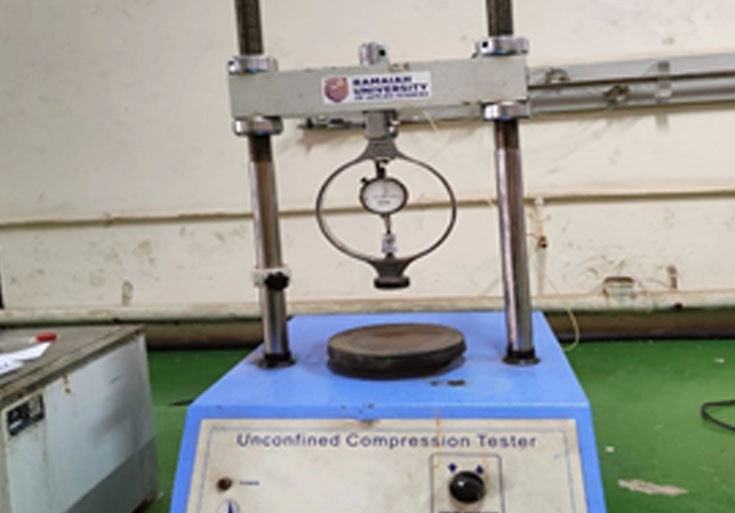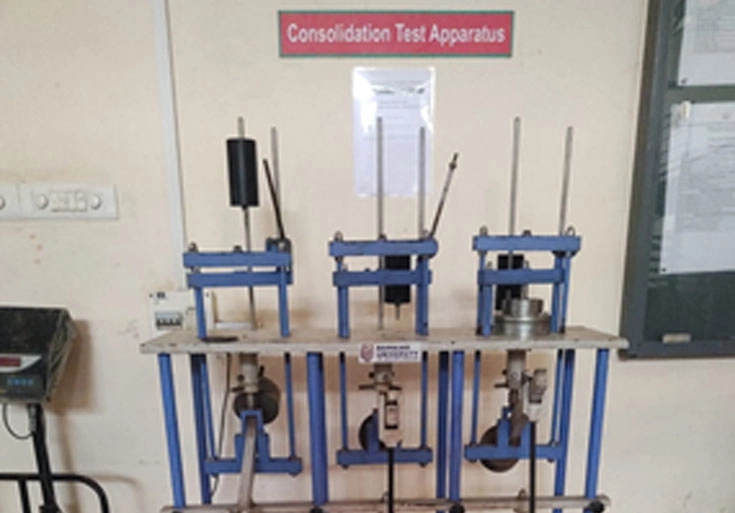Geotechnical Engineering Laboratory
Triaxial Test Apparatus
The Triaxial Test is used for conducting Triaxial tests on soil samples. It enables students to explore the stress-strain behavior and shear strength characteristics of soils under various loading conditions. This apparatus is essential for understanding soil mechanics and its applications in geotechnical engineering, helping students gain insights into soil stability, foundation design, and slope analysis.
Usage: UG and PG Students


Direct Shear Test Apparatus
Direct Shear Test Apparatus is a specialized equipment used to determine the shear strength parameters of soils. It allows students to conduct experiments simulating horizontal shear forces applied to soil samples. This apparatus is crucial for studying the frictional properties of soils, which are fundamental in geotechnical engineering for analyzing soil stability and slope stability.
Usage: UG and PG Students
Unconfined Compression Test Apparatus
The Unconfined Compression Test Apparatus is designed for evaluating the unconfined compressive strength of cohesive soils. Students use this equipment to subject soil samples to axial loads without lateral confinement. It helps in understanding the load-bearing capacity of soils, which is essential for foundation design and geotechnical investigations.
Usage: UG and PG Students


Consolidation Test Apparatus – 3 Gang
Consolidation Test Apparatus is a key resource for studying the consolidation behavior of soils. It enables students to investigate how soils deform and settle over time under the influence of applied loads. Understanding consolidation is critical for predicting settlement and deformation of soil layers beneath structures, which is vital in geotechnical engineering for safe and stable construction.
Usage: UG and PG Students
